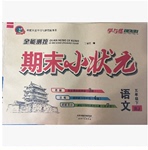题目内容
阅读理解。
Are you sometimes a little tired and sleepy in the early afternoon? Many people feel this way after lunch. They may think that eating lunch is the cause of the sleepiness. Or, in summer, they may think it is the heat. However, the real reason lies inside their bodies. At that time — about eight hours after you wake up — your body temperature goes down. This is what makes you slow down and feel sleepy. Scientists have tested sleep habits in experiments where there was no night or day. The people in these experiments almost always followed a similar sleeping pattern. They slept for one long period and then for one short period about eight hours later.
In many parts of the world, people take naps (小睡) in the middle of the day. This is especially true in warmer climates, where the heat makes work difficult in the early afternoon. Researchers are now saying that naps are good for everyone in any climate. A daily nap gives one a more rested body and mind and therefore is good for health in general. In countries where naps are traditional, people often suffer less from problems such as heart disease. Many working people, unfortunately, have no time to take naps. Though doctors may advise taking naps, employers don't follow it! If you do have the chance, however, here are a few tips about making the most of your nap. Remember that the best time to take a nap is about eight hours after you get up. A short sleep too late in the day may only make you feel more tired and sleepy afterward. This can also happen if you sleep for too long. If you do not have enough time, try a short nap — even ten minutes of sleep can be helpful.
1.Why do you sometimes feel sleepy in the early afternoon?
A.Because you eat too much for lunch.
B.Because it's hot in summer.
C.Because your body temperature goes down at that time.
D.Because you didn't have a good sleep last night.
2.What can we learn about “naps” according to the last paragraph?
A.All the people in warmer climates take naps in the middle of the day.
B.Doctors need to take naps while employers don't.
C.If you take naps every day, you'll never suffer from heart disease.
D.Taking naps regularly is beneficial to people's health.
3.What can we infer from the passage?
A.If you get up at 6:30 am, you'd better take a nap at about 1:30 pm.
B.Taking a nap whenever you want will do good to your health.
C.You will feel less sleepy if you sleep for a long time.
D.You'll feel sleepy at regular intervals.
4.What would be the best title for the text?
A.Just for a Rest
B.All for a Nap
C.A Special Sleep Pattern
D.Taking Naps in Warmer Climates
 全能测控期末小状元系列答案
全能测控期末小状元系列答案 智趣暑假温故知新系列答案
智趣暑假温故知新系列答案

